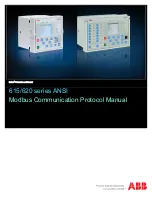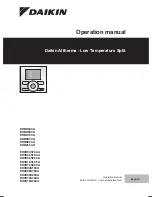
dIXEL
Installing and Operating Instructions
1592026010
1592026010 XW40K GB R1.0 22.02.2008.doc
XW40K
4/5
XW40K – 8 DIN CASE - DIMENSIONS
9. Electrical connections
XW40K
is provided with screw terminal blocks to connect cables with a cross section up to 2,5 mm
2
for
the RS485(optional) and the keyboard. Connecting other inputs, power supply and relays,
XW40K
is
provided with Faston connections (6,3mm). Heat-resistant cables have to be used. Before connecting
cables make sure the power supply complies with the instrument’s requirements. Separate the probe
cables from the power supply cables, from the outputs and the power connections. Do not exceed the
maximum current allowed on each relay, in case of heavier loads use a suitable external relay.
N.B.
Maximum current allowed for all the loads is 20A.
9.1
PROBE CONNECTIONS
The probes shall be mounted with the bulb upwards to prevent damages due to casual liquid
infiltration. It is recommended to place the thermostat probe away from air streams to correctly
measure the average room temperature. Place the defrost termination probe among the evaporator
fins in the coldest place, where most ice is formed, far from heaters or from the warmest place during
defrost, to prevent premature defrost termination.
10. TTL/RS485 Serial line
The TTL connector allows, by means of the external module TTL/RS485
(XJ485CX)
, to connect the
unit to a network line
ModBUS-RTU
compatible as the
dIXEL
monitoring system XJ500 (Version
3.0). The same TTL connector is used to upload and download the parameter list of the “
HOT KEY
“.
The instruments can be ordered wit the serial output RS485(Optional).
11. Use of the programming “HOT KEY “
The Wing units can UPLOAD or DOWNLOAD the parameter list from its own E2 internal memory to
the
“Hot Key”
and vice-versa.
11.1
DOWNLOAD (FROM THE “HOT KEY” TO THE INSTRUMENT)
1.
Turn OFF the instrument by means of the ON/OFF key, remove the TTL serial cable if present,
insert the
“Hot Key”
and then turn the Wing ON.
2.
Automatically the parameter list of the
“Hot Key”
is downloaded into the Wing memory, the
“
DoL
” message is blinking. After 10 seconds the instrument will restart working with the new
parameters.
3.
Turn OFF the instrument remove the
“Hot Key”,
plug in the TTL serial cable, then turn it ON
again.
At the end of the data transfer phase the instrument displays the following messages:
“
end
“ for right programming.
The instrument starts regularly with the new programming.
“
err
” for failed programming.
In this case turn the unit off and then on if you want to restart the download again or remove
the “
Hot key
” to abort the operation.
11.2
UPLOAD (FROM THE INSTRUMENT TO THE “HOT KEY”)
1.
Turn OFF the instrument by means of the ON/OFF key and remove the TTL serial cable if
present; then turn it ON again.
2.
When the Wing unit is ON, insert the “
Hot key
” and push
o
key; the
"uPL"
message
appears.
3.
Push “
SET”
key to start the UPLOAD; the “
uPL
” message is blinking.
4.
Turn OFF the instrument remove the
“Hot Key”,
plug in the TTL serial cable, then turn it ON
again.
At the end of the data transfer phase the instrument displays the following messages:
“
end
“ for right programming.
“
err
” for failed programming. In this case push “SET” key if you want to restart the
programming again or remove the not programmed “
Hot key
”.
12. ALARM SIGNALS
Message Cause
Outputs
“P1”
Thermostat probe failure
Alarm output ON; Compressor output according to
parameters “COn” and “COF”
“P2”
Evaporator probe failure
Alarm output ON; Other outputs unchanged
“P3”
Probe 3 probe failure
Alarm output ON; Other outputs unchanged
“P4”
Probe 4 probe failure
Alarm output ON; Other outputs unchanged
“HA”
Maximum temperature alarm
Alarm output ON; Other outputs unchanged
“LA”
Minimum temperature alarm
Alarm output ON; Other outputs unchanged
"HA2" Condenser high temperature
It depends on the “Ac2” parameter
"LA2" Condenser low temperature
It depends on the “bLL” parameter
“dA”
Door open
Compressor and fans restarts
“EA”
External alarm
Output unchanged.
“CA”
Serious external alarm (i1F=bAL) All outputs OFF.
“CA”
Pressure switch alarm (i1F=PAL) All outputs OFF
“EE”
Data or memory failure
Alarm output ON; Other outputs unchanged
The alarm message is displayed until the alarm condition is recovery.
All the alarm messages are showed alternating with the room temperature except for the “P1” which is
flashing.
To reset the “EE” alarm and restart the normal functioning press any key, the “
rSt
” message is
displayed for about 3s.
12.1
SILENCING BUZZER
Once the alarm signal is detected the buzzer can be silenced by pressing any key. Buzzer is mounted
in the keyboard and it is an option.
12.2
“EE” ALARM
The
dIXEL
instruments are provided with an internal check for the data integrity. Alarm “EE” flashes
when a failure in the memory data occurs. In such cases the alarm output is enabled.
12.3
ALARM RECOVERY
Probe alarms : “
P1
” (probe1 faulty), “
P2
” and “
P3
”; they automatically stop 10s after the probe restarts
normal operation. Check connections before replacing the probe.
Temperature alarms “
HA
”, “
LA
” “
HA2
” and “
LA2
” automatically stop as soon as the temperature
returns to normal values.
Alarms
“EA”
and
“CA”
(with i1F=bAL)
recover as soon as the digital input is disabled.
Alarm “
CA”
(with i1F=PAL) recovers only by
switching off and on
the instrument.
13. Technical data
Keyboards
Housing:
self extinguishing ABS.
Case: T620:
facia 38x185 mm; depth 23mm
V620:
facia 72x56 mm; depth 23mm
CX620:
facia 75x36 mm; depth 23mm
Mounting:
T620:
panel mounting in a 150x31 mm panel cut-out with two screws.
∅
3 x 2mm.
Distance between the holes 165mm
V620:
panel mounting in a 56x72 mm panel cut-out with two screws.
∅
3x2mm. Distance
between the holes 40mm
CX620:
panel mounting in a 71x29mm panel cut-out
Protection:
IP20;
Frontal protection:
IP65 with frontal gasket
Connections:
Screw terminal block
≤
2,5 mm
2
Power supply:
from
XW40K
power module
Display
: 3 digits, red LED, 14,2 mm high.
Optional
output: buzzer
Power module XW40K
Case: 8 DN:
140X176X148.
Connections:
Screw terminal block
≤
2,5 mm
2
heat-resistant wiring and 6,3mm Faston
Power supply:
230Vac or. 110Vac
±
10% or 24Vac
Power absorption:
10VA max.
Inputs
: 4 NTC probes
Digital inputs
: 1 free voltage
Relay outputs:
Total current on loads MAX. 20A
compressor:
relay SPST 20(8) A, 250Vac
defrost:
relay SPST 16(5) A, 250Vac
light
(oA3):
relay SPST 16(5) A, 250Vac
Serial output :
TTL standard.
Communication protocol:
Modbus - RTU
Data storing
: on the non-volatile memory (EEPROM).
Kind of action:
1B.
Pollution grade:
normal
Software class:
A.
Operating temperature:
0÷60 °C.
Storage temperature:
-25÷60 °C.
Relative humidity:
20
÷
85% (no condensing)
Measuring and regulation range: NTC probe:
-40÷110°C (-58÷230°F)
Resolution:
0,1 °C or 1°C or 1 °F (selectable).
Accuracy (ambient temp. 25°C)
: ±0,5 °C ±1 digit
14. CONNECTIONS
14.1
XW40K
15. Default setting values
Label Name
Range
Default Level
REGULATION
Set
Set point
LS÷US
-5.0 -
-
-
Hy
Differential
0,1÷25,5 °C / 1÷45°F
2.0 Pr1
LS
Minimum set point
-50,0°C÷SET / -58°F÷SET
-50.0 Pr2
US
Maximum set point
SET ÷ 110°C / SET ÷ 230°F
110 Pr2
Ot
Thermostat probe calibration
-12
÷
12°C /-120
÷
120°F
0.0 Pr1
P2P
Evaporator probe presence
n=not present; Y=pres.
Y Pr1























